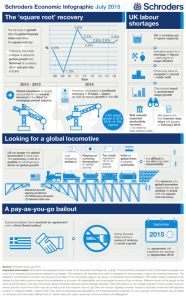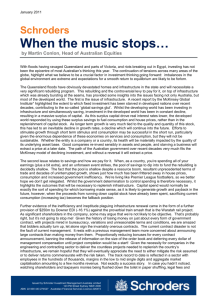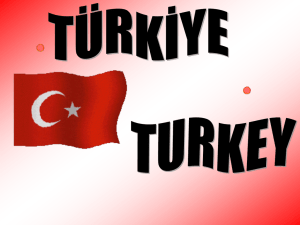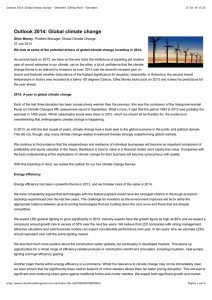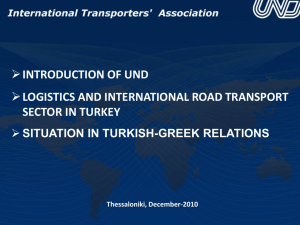Turkish optimism defies difficult backdrop
advertisement
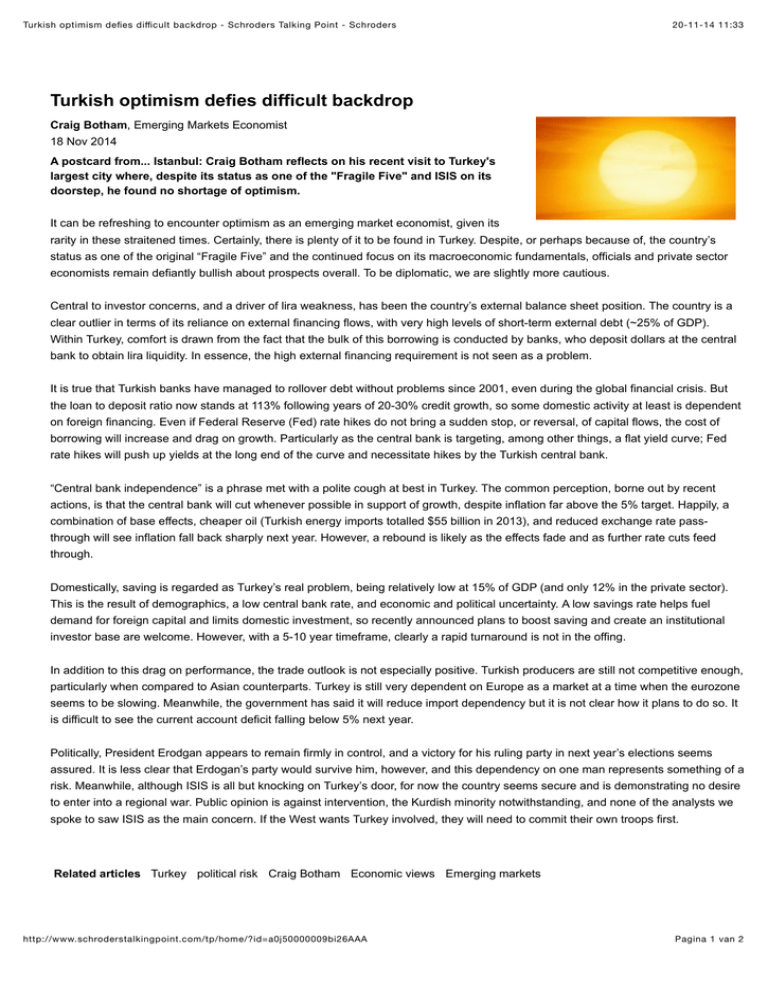
Turkish optimism defies difficult backdrop - Schroders Talking Point - Schroders 20-11-14 11:33 Turkish optimism defies difficult backdrop Craig Botham, Emerging Markets Economist 18 Nov 2014 A postcard from... Istanbul: Craig Botham reflects on his recent visit to Turkey's largest city where, despite its status as one of the "Fragile Five" and ISIS on its doorstep, he found no shortage of optimism. It can be refreshing to encounter optimism as an emerging market economist, given its rarity in these straitened times. Certainly, there is plenty of it to be found in Turkey. Despite, or perhaps because of, the country’s status as one of the original “Fragile Five” and the continued focus on its macroeconomic fundamentals, officials and private sector economists remain defiantly bullish about prospects overall. To be diplomatic, we are slightly more cautious. Central to investor concerns, and a driver of lira weakness, has been the country’s external balance sheet position. The country is a clear outlier in terms of its reliance on external financing flows, with very high levels of short-term external debt (~25% of GDP). Within Turkey, comfort is drawn from the fact that the bulk of this borrowing is conducted by banks, who deposit dollars at the central bank to obtain lira liquidity. In essence, the high external financing requirement is not seen as a problem. It is true that Turkish banks have managed to rollover debt without problems since 2001, even during the global financial crisis. But the loan to deposit ratio now stands at 113% following years of 20-30% credit growth, so some domestic activity at least is dependent on foreign financing. Even if Federal Reserve (Fed) rate hikes do not bring a sudden stop, or reversal, of capital flows, the cost of borrowing will increase and drag on growth. Particularly as the central bank is targeting, among other things, a flat yield curve; Fed rate hikes will push up yields at the long end of the curve and necessitate hikes by the Turkish central bank. “Central bank independence” is a phrase met with a polite cough at best in Turkey. The common perception, borne out by recent actions, is that the central bank will cut whenever possible in support of growth, despite inflation far above the 5% target. Happily, a combination of base effects, cheaper oil (Turkish energy imports totalled $55 billion in 2013), and reduced exchange rate passthrough will see inflation fall back sharply next year. However, a rebound is likely as the effects fade and as further rate cuts feed through. Domestically, saving is regarded as Turkey’s real problem, being relatively low at 15% of GDP (and only 12% in the private sector). This is the result of demographics, a low central bank rate, and economic and political uncertainty. A low savings rate helps fuel demand for foreign capital and limits domestic investment, so recently announced plans to boost saving and create an institutional investor base are welcome. However, with a 5-10 year timeframe, clearly a rapid turnaround is not in the offing. In addition to this drag on performance, the trade outlook is not especially positive. Turkish producers are still not competitive enough, particularly when compared to Asian counterparts. Turkey is still very dependent on Europe as a market at a time when the eurozone seems to be slowing. Meanwhile, the government has said it will reduce import dependency but it is not clear how it plans to do so. It is difficult to see the current account deficit falling below 5% next year. Politically, President Erodgan appears to remain firmly in control, and a victory for his ruling party in next year’s elections seems assured. It is less clear that Erdogan’s party would survive him, however, and this dependency on one man represents something of a risk. Meanwhile, although ISIS is all but knocking on Turkey’s door, for now the country seems secure and is demonstrating no desire to enter into a regional war. Public opinion is against intervention, the Kurdish minority notwithstanding, and none of the analysts we spoke to saw ISIS as the main concern. If the West wants Turkey involved, they will need to commit their own troops first. Related articles Turkey political risk Craig Botham Economic views Emerging markets http://www.schroderstalkingpoint.com/tp/home/?id=a0j50000009bi26AAA Pagina 1 van 2 Turkish optimism defies difficult backdrop - Schroders Talking Point - Schroders 20-11-14 11:33 Issued by Schroder Investment Management Limited, 31 Gresham Street, London EC2V 7QA. Registered No: 1893220 England. Authorised and regulated by the Financial Conduct Authority For more information on Schroders' products and services visit Schroders' global website. © Copyright 2014 Schroders plc Important information Privacy statement Cookies Site map http://www.schroderstalkingpoint.com/tp/home/?id=a0j50000009bi26AAA Pagina 2 van 2


